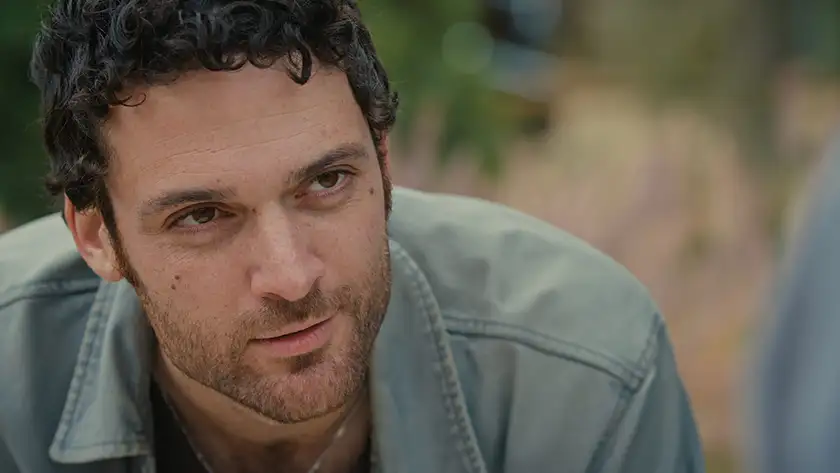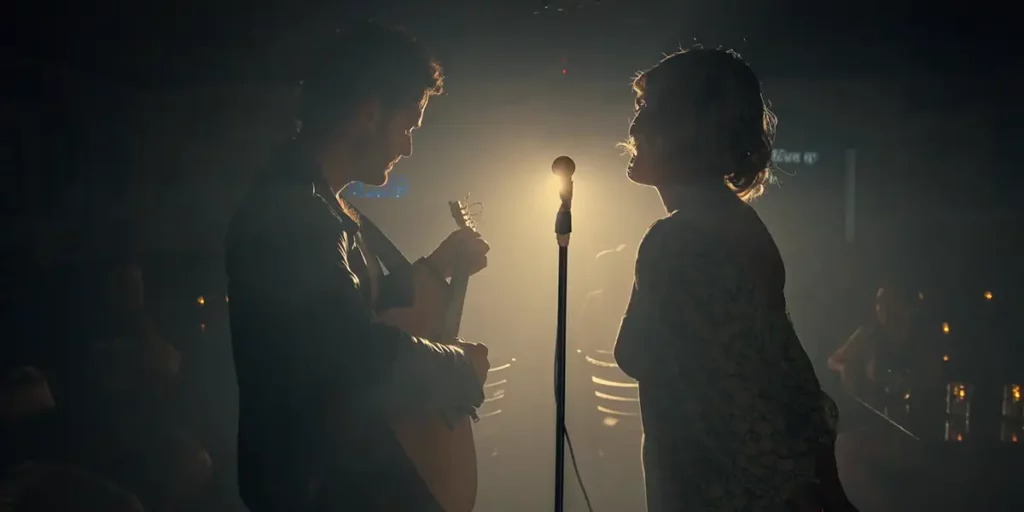In Pure O, Dillion Tucker gives a palpable understanding of the nuances associated with OCD, but falls flat moving the film beyond that.
Obsessive Compulsive Disorder (OCD) is a disorder that is not widely understood. Most people’s concept of OCD revolves around individuals obsessively cleaning or counting in a manner that is beyond their control. However, that is not the only form of OCD that impacts people. At its core, OCD is a disorder revolving around repeated unwanted thoughts and fears. Their unwanted thoughts and fears develop into obsessions that can lead them to act on their compulsions in an attempt to contain their obsessions. It’s debilitating and multifaceted, but it is also not a disorder that is fully comprehended by mainstream media. In Pure O, writer/director Dillion Tucker sets out to give people a palpable definition of what OCD is, what the disorder looks like and how it impacts the people who struggle with it.
Pure O is the story of Cooper (Daniel Dorr, of 20th Century Women) a recently engaged aspiring screenwriter who has just been diagnosed with “Pure O”, a form of OCD that does not result in external compulsions like cleaning or counting but rather manifests in repeated distressing and intrusive thoughts. The film follows as Cooper navigates his new diagnosis as it interacts with his relationship, dreams to become a successful screenwriter and day job at a high-end rehabilitation center in Malibu.
The film is at its best when it breaks down this often misunderstood disorder. Tucker explains OCD through a lens that gives solid answers to questions people may have about the disorder. More than anything, his movie brings clarity to the impact of OCD and defines the disorder in a way that is palpable for audiences.
The conversations Cooper has with his OCD counselor Nora (Candice Renee, of Westworld) break down how OCD impacts people beyond a stereotype. While Cooper goes into their meeting reluctant that he even has OCD, thinking instead he has depression, Nora clocks his fears and is able to recite his internal monologue back to him showing that while he may feel completely alone, this disorder impacts more people than he could imagine.

There is a clear level of care and sensitivity put into the writing of Pure O. In the film, OCD is made to be a topic that is approachable, and the support system around Cooper’s character serves as a vessel for the audience to learn about this disorder alongside Cooper himself. The film does a good job of showing the diverse ways in which this affliction can really impact and debilitate those who suffer from it but also shows that OCD does not need to define them.
However, the rest of the film falls flat in terms of impact. Within the runtime, there are too many storylines that are too disjointed to make for a cohesive movie. Cooper’s relationship with his fiancée, Emily (Hope Lauren, of The Forever Purge), is one of the main storylines throughout the film, yet Emily has no dimension outside of her relationship with Cooper. Even though there is clear chemistry between Dorr and Lauren, as a character we don’t know any of her motivations or background. It’s briefly mentioned that she wants to move to New York City and she plays music throughout the movie, but outside of those two factors we get no context as to who she is and she is arguably the second biggest character within the film. There is a plotline that stems from her step-father getting sick, but we never see her relationship with him meaningfully develop, we only see Cooper’s relationship with him.
This is a theme that courses throughout the entire film. Cooper spends a lot of time at the drug rehabilitation center where he works. He is not a former addict nor has he ever struggled with addiction; his friend just thought this would be something he’d be good at (which, with no formal education on addiction, raises the question of how qualified he would be to be in such a high-up position at this high-end rehab). He is apparently very close with his co-workers, yet we never learn anything about them outside of the fact they also work at the facility. In rehab, there is an 18-year-old girl named Rachel (Landry Bender, of Fuller House) to whom Cooper serves as a mentor. She gets the most background context of any character, but it feels like we, the audience, only learn about her background because of how it has made her reliant on Cooper. Every secondary character seems to only exist to give Cooper’s character more depth.
By the second act of the movie, when Cooper is getting a hold of his condition, Pure O begins to collapse in on itself as the only thing seemingly holding all the plot points together is how things impact Cooper and nothing else. Too many extraneous plotlines are added, the resolution to the central problems of the film are extremely convenient and there is this comparison between drug addiction and OCD that doesn’t necessarily land in a meaningful conclusion.
In the first act of Pure O, Tucker is able to bring to light a really meaningful conversation about Obsessive Compulsive Disorder and its impact on those who experience this disorder, their loved ones, and the way they see the world around them. The second half, however, is unable to match the first in depth and nuance resulting in a lackluster conclusion to a seemingly promising film.
Pure O is currently having a theatrical run in LA and will be available to watch on digital and on demand from April 12, 2024.
Loud and Clear Reviews has an affiliate partnership with Apple, so we receive a share of the revenue from your purchase or streaming of the films when you click on the button on this page. This won’t affect how much you pay for them and helps us keep the site free for everyone.

